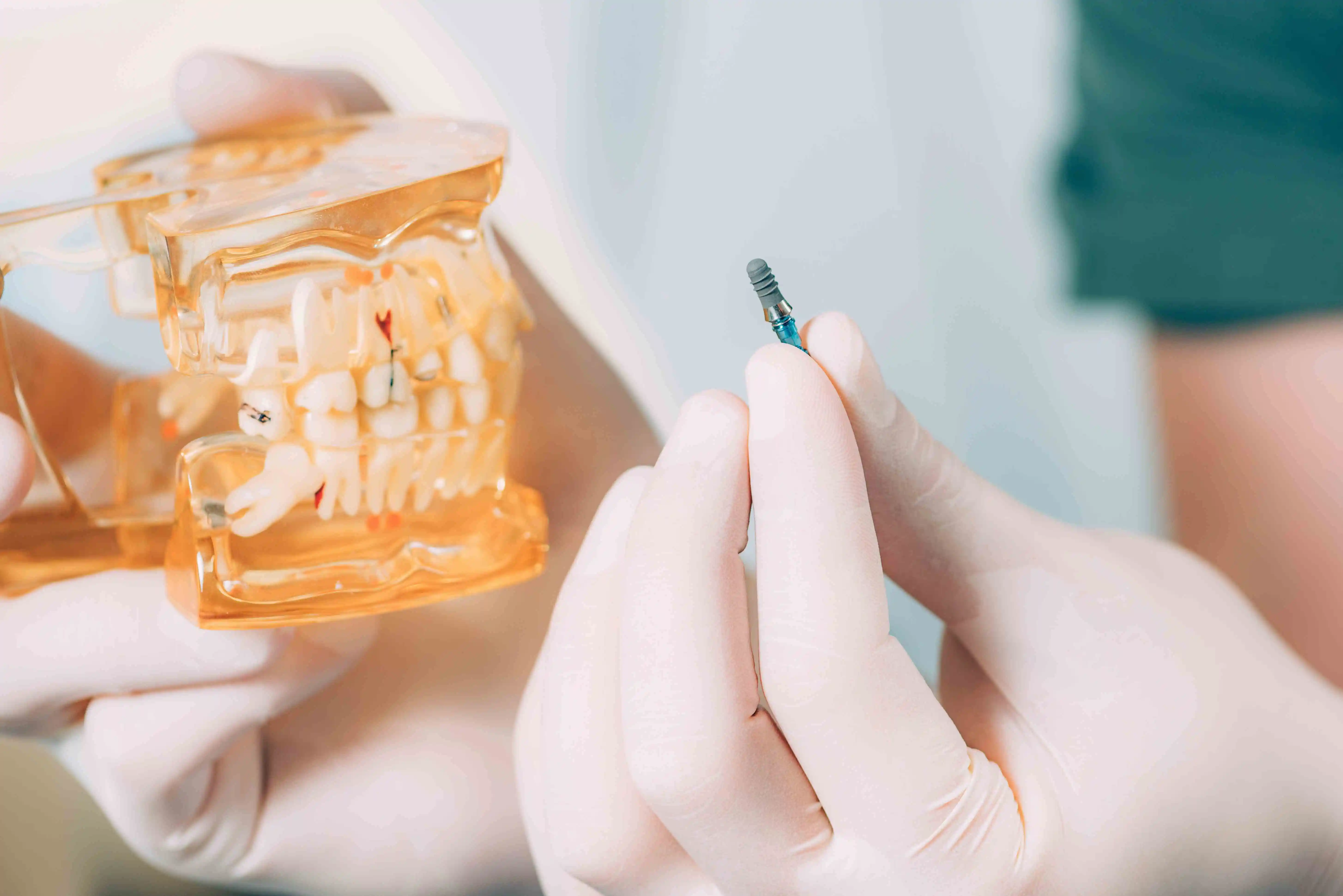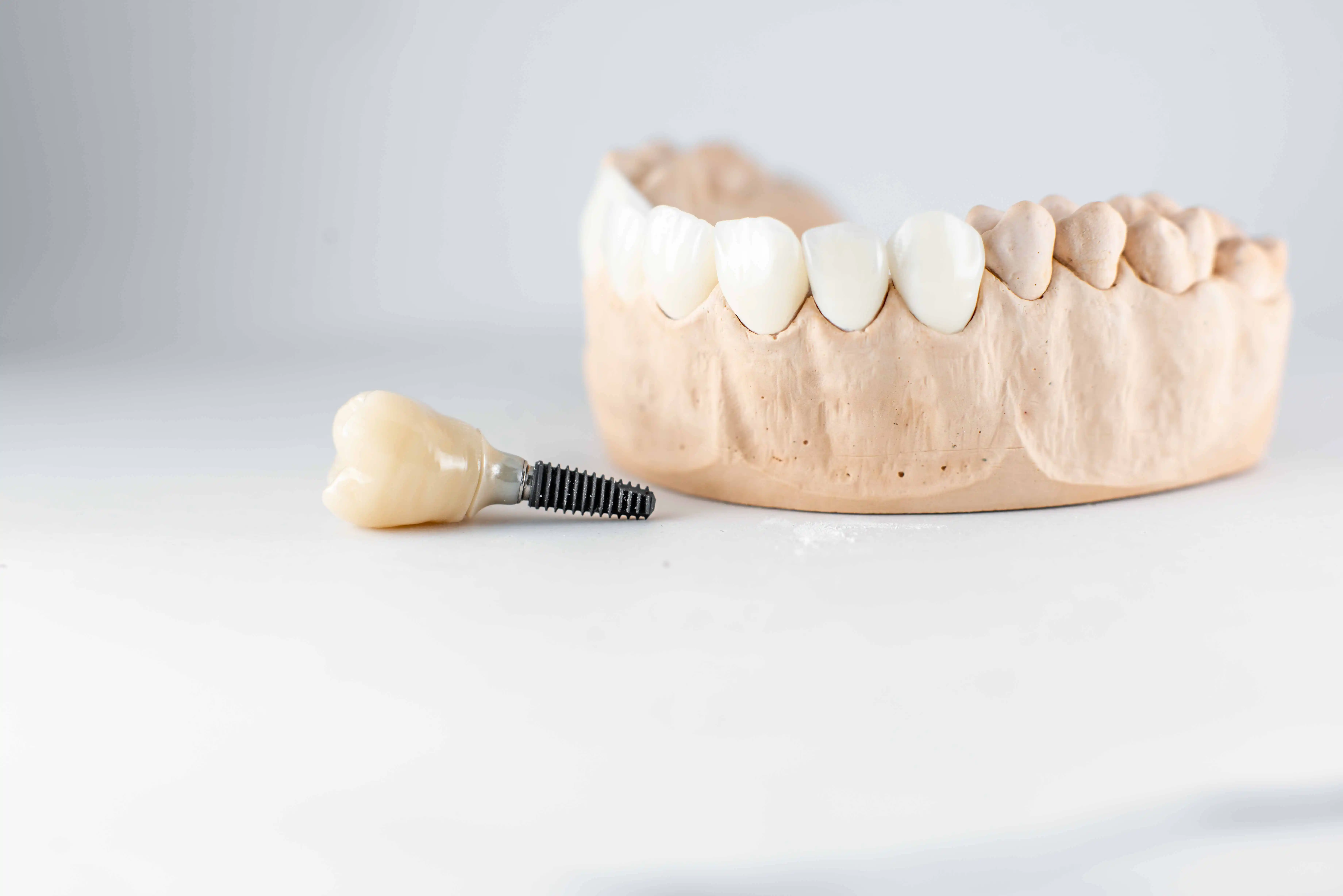A few missing teeth can cost you a beautiful smile and a chance to move through social circles confidently. With increasing advancements in cosmetic dentistry, it has become easier to replace missing teeth and improve the aesthetics of your face. Among the alternatives for missing teeth, dental implants are among the most popular and highly recommended. People considering this alternative often wonder, “Are dental implants painful?” We’ve enveloped everything about what to expect in dental implant surgery and how to care for your implant following the surgery. Let’s get started!
What are Dental Implants?
A dental implant is a replacement tooth attached and fused to the jawbone. The implant is used to secure the tooth to the jawbone. Dental implants are one of the best teeth replacement options. Dental implants give the appearance of natural teeth and look like them, too. They can be highly reliable and last for years without requiring repairs and replacements when taken care of.
Dental implants are touted to be the best alternative for replacing missing teeth and tend to last longer than any other tooth replacement alternative.
Dental implants offer several benefits:
- They can restore a person’s confidence.
- They can give a boost to the facial tissues and prevent the facial structure from altering.
- Dental implants help in restoring lost function to the oral cavity.
- They help prevent loss of jawbone density.
- Dental implants successfully replace missing teeth without impacting the surrounding teeth.
- Dental implants feel like your natural teeth and resemble them as well.
What to Expect in a Dental Implant Surgery

Most patients who learn about dental implants and how they are installed have one central question: “Are dental implants painful?”
Le Sueur Family Dental is here to tell you what to expect in a dental implant surgery and how much pain or discomfort you will experience. Let’s walk through the surgery part of the process first.
- The first step is to take X-rays and impressions of your tooth to get an idea of where the implant will be placed and whether the space available is sufficient. Your dentist will also check your gums’ health and jawbone density before proceeding.
- The area is first numbed using local anesthesia. The surgeon will not proceed unless they are sure that the entire area has become completely anesthetized.
- After the area is completely numb, the dental implant is inserted into your jawbone and given time to heal and incorporate into the bone. This incorporation can take up to six months.
- After a couple of weeks, the artificial tooth or teeth are fixed to the abutment.
- Once the healing period is over, and the artificial tooth is firmly attached to the post, the patient can use the implant as their normal teeth.
Are Dental Implants Painful? – What’s Typical & What’s Not

The question remains. Are dental implants painful?
A quick internet search will yield horrifying images and videos. But the internet can be an overdramatic place. Dental implant surgery is not as painful and terrifying as it looks.
Firstly, because the area is completely numbed with the help of local anesthesia, you will not experience any pain during the surgery. You may feel pressure at times, but there will be no pain.
If you have a good bone structure that does not require extensive soft-tissue surgery, you will experience mild pain for about 12 to 24 hours. The pain will peak after 72 hours and slowly subside afterward.
Dental implant surgery involves trauma to the soft tissues and the jawbone. Patient’s pain after dental implant surgery is actually because of the soft tissue manipulation done during the procedure.
Dental implant procedures where the soft tissues do not have to be lifted and adjusted are pretty straightforward. The resulting pain can be cured by opting for over-the-counter Advil or Tylenol.
Dental implant procedures that involve bone grafting can be painful and require higher-strength pain relievers than just over-the-counter medication.
Pain after a dental implant also depends on a person’s threshold for pain. Some people have a higher limit, and others cannot bear the pain. Irrespective of the type of dental implant procedure you get, you should expect the pain from a dental implant installation to subside within three to four days.
Dental Implant Surgery- Post Treatment Care

Dental implant aftercare is vital and can help make the implant last longer. Taking proper care of your dental implant can help you avoid a lot of discomfort and pain in the short and long term.
Start Care Immediately After the Surgery
The dental implant care process should begin immediately after the procedure is done. Begin by taking complete rest and arrange for someone to drive you back home. The anesthesia effects will continue to wear off after the surgery, so it won’t be best to commandeer a vehicle right after getting your implant.
Pain Management
Your dentist will recommend pain medication post dental implant surgery. Follow those instructions carefully and take your medication when discomfort is too severe. As mentioned earlier, the pain after a dental implant surgery will peak after 72 hours. Consult your doctor immediately if the pain and discomfort persists after the 72 hour period.
Bleeding Control
It is common to experience bleeding after implant surgery. You can expect to see tinges of red in your saliva until 72 hours after your surgery. Bite on a piece of gauze to control excess bleeding. Stay calm and avoid strenuous physical activity.
Oral Hygiene Maintenance
Dental implants tend to last longer when they are correctly maintained. This practice should start immediately after dental implant surgery. Cleaning surrounding teeth and soft tissue after getting a dental implant is of utmost importance in order to avoid bacterial infections, which can result in implant failure.
Rinsing your mouth with lukewarm water containing a teaspoon of salt can help soothe the pain and keep the affected area clean. Be careful while brushing your teeth and avoid contact with the dental implant. Avoid using electronic toothbrushes. Your dentist can provide you with a dental implant toothbrush post-surgery.
Dietary Restrictions
Observing the correct dietary restrictions post a dental implant surgery is critical. Opt for soft fruits and vegetables, cold soups, mashed potatoes, oats, and wheat cereal. Avoid dairy, as dairy products can cause oral tissue inflammation, which is not desirable after a dental implant.
Also, refrain from having hard, chewy, spicy, and acidic foods. Do not use a straw for drinking liquids, as the straw’s impact against the dental implant might be harmful.
Get the Best Dental Implant Surgery and Care at Le Sueur Family Dental
Le Sueur Family Dental aims to provide personalized and professional care for you and your family. Our clinic offers some of the best dental implant surgery and available care guidelines. Using state-of-the-art equipment, our highly skilled specialists always look for ways to give you a complete smile.
You can contact us by leaving your details so we can get back to you or by placing an appointment request to meet with us. You can also email us at office@lesueurfamilydental.com or (507) 665-6812. Get your new dental implant at Le Sueur Family Dental.

